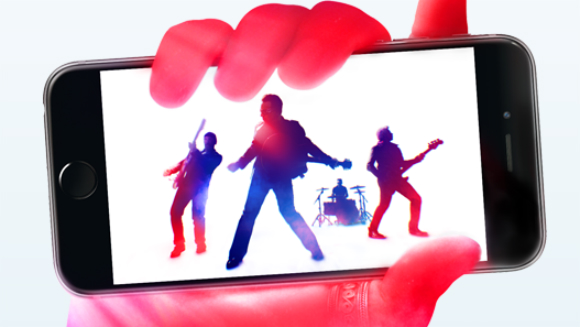If Apple loves music so much, why is it killing it?
The iTunes U2 album isn't just bad for your ears

During last night's iPhone 6 launch, Apple announced the biggest album release of all time. U2's Songs of Innocence is being given away to every iTunes user, which means it'll potentially end up on more than half a billion people's devices.
Why give it away for free?
Cynics would say that it's because U2 are a band way past their commercial peak, and that when they release their next album they'll pay you to listen to it. But let's assume that isn't true, and that the U2 album is worth paying for. Apple just told the world that music should be free.
If Apple loves music so much, why is it helping to screw the people who make it?
It's a rich man's world
When Apple announced the free album, Scots indie hero Aidan Moffat wasn't impressed. "A band of millionaires 'gift' their new album exclusively on iTunes, and the devaluation of music reaches its apex," he wrote on Twitter. "Well done, U2."
Moffat is no music snob - his late-night Twitter/YouTube marathons are joyous adventures into all kinds of music, and we've spotted him loving the same Girls Aloud and Pet Shop Boys gigs we've been to - but he is a musician, and unlike U2 he doesn't have a massive global stadium tour lined up to compensate for the royalties lost from giving away hundreds of millions of free albums.
The U2/Apple deal is part of something Radiohead's Thom Yorke has criticised, claiming that tech firms "have made all content, including music and newspapers, worthless in order to make their billions." That probably sounds a bit rich coming from someone whose "we're loaded already, so pay what you want" internet fire sale was also criticised for devaluing music, but that doesn't mean he's wrong.
Sign up for breaking news, reviews, opinion, top tech deals, and more.
You can understand why low-paid indie artists might balk at millionaire rockers' albums being given away for free by a firm selling expensive smartphones (and now headphones) with incredible profit margins.
Apple isn't killing music itself. That's existed since humans first hit things with other things. But it and its fellow tech giants are picking up where Napster left off by helping to kill the ability of most musicians to make a living from it.
They're doing the same to other art forms too. It's just content, and the people who make it are just content producers. A few superstars and the odd surprise breakthrough make fortunes, and everybody else scrabbles for scraps.
It's not all bad - a world with Taylor Swift in it can't be - but this superstar effect means that increasingly, the rewards go to a tiny handful of people filling massive venues by appealing to the lowest common denominator or trading on fanbases they built when MTV still showed music videos.
If you value the more interesting stuff, this would be a really good time to visit your local indie record shop. If you're looking for recommendations, Aidan Moffat's stuff is pretty good.
- But Apple's definitely not giving away its new phone for free. iPhone 6 hands on review

Contributor
Writer, broadcaster, musician and kitchen gadget obsessive Carrie Marshall has been writing about tech since 1998, contributing sage advice and odd opinions to all kinds of magazines and websites as well as writing more than twenty books. Her latest, a love letter to music titled Small Town Joy, is on sale now. She is the singer in spectacularly obscure Glaswegian rock band Unquiet Mind.